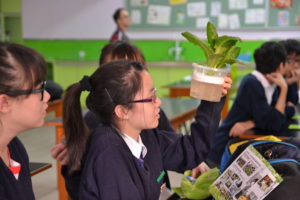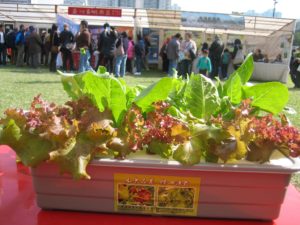FAQ

1. How do you grow vegetables without soil?
People grow vegetables in soil because the mineral ions the plant needs can be obtained in the soil; what our plants require is not the soil, but the minerals. In our farm, all required mineral salts are dissolved into water homogenously; different nutrients are absorbed through the root according to individual plant’s need.
2. Is hydroponics a new technique?
No, hydroponics has been around for more than thousand years. However, it has been over-taken by traditional soil farming; modern technologies allow this old technique to reach new heights. Nowadays, scientists have succeeded in growing vegetables in adverse conditions such as indoors, the desert, Antarctica and in aerospace labs.
3. What can we grow with hydroponics?
Using proper methods, hydroponics is able to grow numerous produces including herbs, lettuces, pac choy, choy sum, tomatoes, carrots, melons, fruits etc.
4. Is hydroponics organic farming or not?
Soil cultivation and hydroponics are two separate branches of agriculture; organic farming applies soil cultivation, while hydroponics does not need any soil. So it is impossible to compare. However, both hydroponics and organic farming comply with the principles of sustainability, environmental friendliness, natural conservation and zero pesticide.
5. What do you have in hydroponic nutrient?
We have mineral salts that provide nitrogen, phosphorus and potassium, the trace elements that the veggies needs in its growth period. Our nutrient solution has ingredients similar to seawater, but pollutants of heavy metals or bacteria are absent, and the salinity level is lower.
6. How do you eliminate insects and worms without using pesticide?
We don’t eliminate insects and worms in our mission to preserve ecological biodiversity. Our greenhouses are built to isolate our crops from Mother nature. Insects and worms are mostly kept outside. But occasionally, we do come across a trespasser trying to make its cozy home in the shelter of our veggies
7. Can I visit Amazing Greens and do you give talks to groups?
Our greenhouses are usually locked to prevent possible contamination. However, we do host group visits occasionally. Also, our scientists and engineers are always delighted to share their experience with the public, so please contact us for proper arrangements by phone or e-mail.

